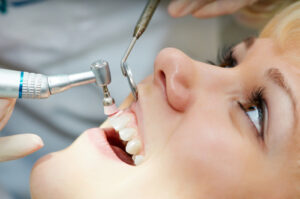A healthy, confident smile depends on maintaining good oral hygiene. While frequent brushing and flossing are crucial, they might not be sufficient to maintain the healthiest possible teeth and gums. Dental prophylaxis, sometimes called professional teeth cleaning, is essential for maintaining excellent oral health. This article encourages readers to emphasize this crucial component of dental care by examining the significance of tooth cleaning, its advantages, and the technique required.
 Understanding Teeth Cleaning
Understanding Teeth Cleaning
A dental hygienist or a dentist will clean your teeth to remove plaque, tartar (hardened plaque), and discoloration. Teeth cleaning is a preventive dental procedure. Maintaining oral health and avoid frequent dental problems, entails a thorough cleaning of the teeth, gums, and other oral structures.
The Importance of Teeth Cleaning
Beyond what can be accomplished with daily brushing and flossing, regular teeth cleaning has a number of advantages:
1. Removing plaque and tartar: Plaque, a bacterial film that sticks to the teeth, forms continuously. If it is not sufficiently removed over time, it hardens into tartar and cannot be removed by brushing regularly. Plaque and tartar are effectively removed by teeth cleaning, which lowers the risk of tooth decay and gum disease.
2. Gum disease prevention: Periodontal disease, commonly known as gum disease, is a common ailment of the mouth that affects the gums and the tissues that support the teeth. Professional teeth cleaning removes germs and plaque accumulation, which helps stop gum disease from starting or worsening. This is essential since untreated gum disease can cause tooth loss and affect overall health.
3. Clean Breath: Food particles and lingering microorganisms can lead to poor breath. Your breath will be fresher and more pleasant after brushing your teeth, which helps eliminate these sources of odor.
4. Stain Removal: Some foods, drinks, and lifestyle choices, such as smoking, can stain teeth. When you clean your teeth, you polish them, which helps get rid of surface stains and improves the look of your smile.
5. Early Dental Issues Detection: Dental specialists check your teeth and gums during teeth cleaning appointments for any indications of dental issues such cavities, gum inflammation, or oral cancer. Early identification enables prompt intervention and treatment, avoiding more serious tooth problems.
The Teeth Cleaning Procedure
The following steps are commonly included in the teeth-cleaning process:
- Physical Examination: The dentist will examine your mouth physically to look for any indications of dental problems and to gauge your general oral health.
- Physical Examination: The dental professional will remove plaque and tartar from the teeth using specialized dental instruments, paying close attention to difficult-to-reach places. Both hand scaling and ultrasonic scaling, which use vibrations to remove tenacious deposits, may be used in this operation.
- Cleaning and Polishing: After the teeth are clear of plaque and tartar, the dental expert will clean and polish the teeth using grittier toothpaste and a powerful electric toothbrush. The teeth feel smooth and renewed after this procedure, which also helps remove surface stains.
- Flossing: The dentist will floss between your teeth to remove any leftover plaque or debris.
- Fluoride Treatment (Optional): To fortify the enamel and guard the teeth against decay, a fluoride treatment may be given in specific circumstances.
Keeping Your Mouth Healthy Between Cleanings
Professional teeth cleaning is essential, but practising good oral hygiene between visits is also important. Here are a few advice:
- Use fluoride toothpaste to brush your teeth at least twice daily.
- To remove plaque and food debris from between your teeth, floss daily.
- To destroy bacteria and give you fresher breath, use an antimicrobial mouthwash.
- Maintain a healthy diet by avoiding meals and drinks high in sugar and acid.
- Give up smoking and other tobacco products because they can exacerbate oral problems.
- Arrange routine dental exams to monitor your oral health and address any issues as soon as they arise.
Conclusion
Regular professional teeth cleaning is one of the most important aspects of preserving excellent oral health. Teeth washing aids in preventing tooth decay, gum disease, and other oral health issues by eliminating plaque, tartar, and stains. A healthy and confident smile is built on regular cleanings and good oral hygiene habits at home. Gain the advantages of a cleaner, healthier mouth by prioritising teeth cleaning in your dental care regimen. Your smile will be grateful.